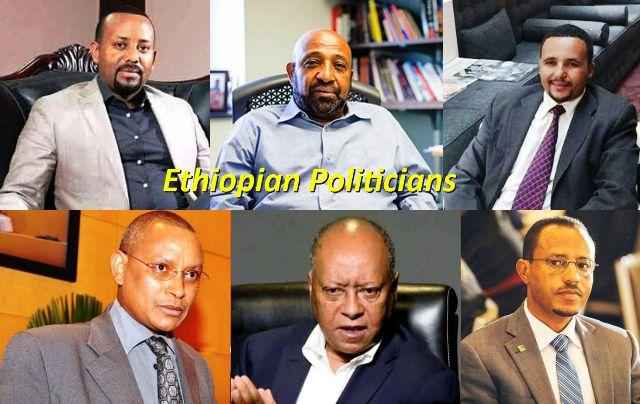
Ethiopian Politicians
Throughout the history of this country, change in Ethiopian politics has always been preceded by violence on a large scale, either through battles, war, revolution, uprisings, or foreign invasions.
The current events taking place in Ethiopia are nothing short of astonishing and unique for a country that has been used to violent overthrows of authority.
Although, admittedly, the ascension of the new reformist Prime Minister Abiy Ahmed has seen episodes of sporadic infighting, ethnic tensions, murders, mass displacement of peoples, and the inevitable looting, these are hardly what Ethiopia has witnessed in the past, prior to most changes in government.
Today, Ethiopia is truly taking the title of the "capital of Africa" to heart and creating an image of politics that any African can wholeheartedly be proud of.
Women have finally been given powerful roles as leaders in Ethiopia, providing an example for not only Africa but also for the rest of the world.
Reforms targeting the inclusion of all of Ethiopia's ethnicities within all positions of the military, government offices, ministries, etc., have created an environment that values hard work as opposed to affiliations of any sort.
Even the decriminalization of all political parties has opened Ethiopia's political climate to debates, conversations, ideas for change and open and free dialogue.
Today, one can witness political talk in every sphere of everyday life in Ethiopia, even the low ratings that ETV or other similar government television stations are seeing a revival.
The true meaning of democracy is when every man, woman and child are free to discuss the nature of their government, because at the end of the day: government is the people and vice versa.
Many would not have believed that they would witness these happenings in their lifetimes, and the excitement and hope for change in Ethiopia is evident everywhere one looks in the country.
The following is a list we prepared of the most important people in current scene of Ethiopian politics.
1. Lemma Megersa
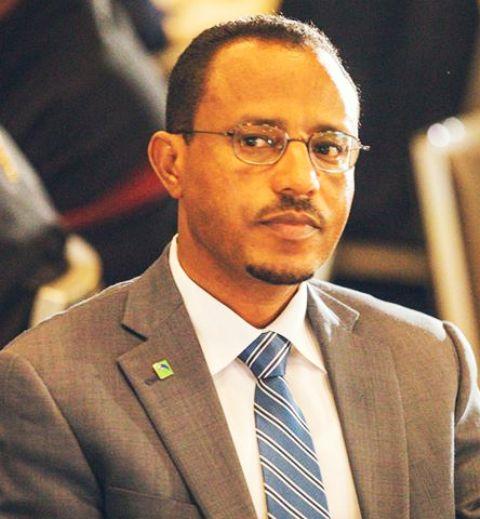
Lemma Megersa born in East Wollega received his bachelor's degree in Political Science and International Relations from Addis Ababa University. Attending the same university Lemma would also go on to get his master's degree in International Relations.
In 2018, Lemma received an honorary Doctorate from Jimma University.
Serving since 2016, as the President of the Oromia Regional State, as well as the Deputy Chairman of the OPDO or Oromo People's Democratic Party, Lemma would be instrumental in the current reformation and attempts to unify the country.
The Economist and other pundits have described him as the country's most popular politician before the ascension of Dr. Abiy Ahmed as Prime Minister of Ethiopia.
2. Dr. Berhanu Nega
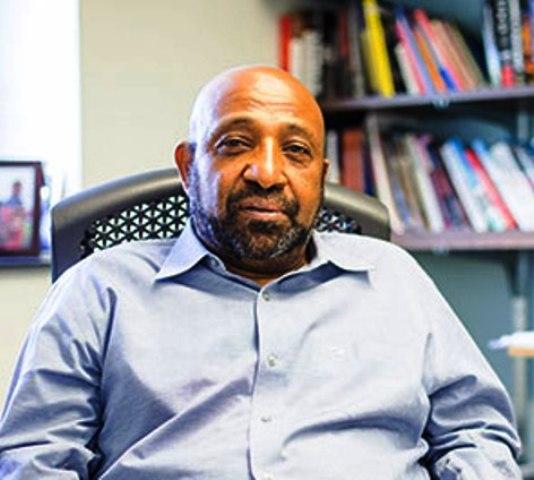
Berhanu Nega is a man that has been fighting one government or another in Ethiopia for over 40 years.
He was just a young student in Addis Ababa University when he began the long journey of striving to fulfill his life's passion: to see a fully democratized, united, and economically strong Ethiopia.
Unfortunately, his vision for Ethiopia would cause Berhanu to go through many hardships: from jail to escapes through the desert to exile to sitting in desolate trenches with his soldiers; his was a unique struggle.
Recent developments in Ethiopia have the reformist Prime Minister Abiy Ahmed vowing to create a political climate free from oppression, and this was exactly what Berhanu Nega had been waiting for all his life.
He heeded the PM's call and returned to his homeland of Ethiopia, after many years in exile.
His welcome can only be described as one given to a hero.
The thousands upon thousands of Ethiopians that flooded the streets proved that this man has the love and respect of Ethiopians throughout the country, but overwhelmingly within the Amhara region.
A man that commands such support will inevitably be a political force to be reckoned with in the newly transitioning Ethiopia.
source: Berhanu Nega Biography: The Fascinating Profile of a Professor Turned Rebel Fighter
3. Dr. Abiy Ahmed
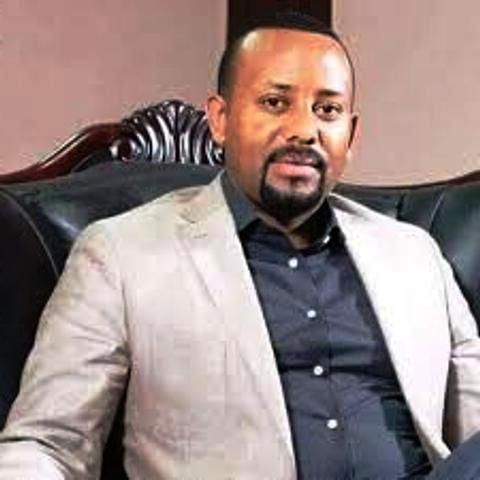
Three passions have inevitably defined the man who stands before us today as the 12th Prime Minister of Ethiopia: his love for education, his desire to become a leader and his aspirations for conflict resolution.
When the Oromos began taking to the streets all over the nation, demanding an end to the land grabbing, the Amharas the second largest ethnic group behind the Oromos followed suit and began their own protests and dissent, to the elation of the "qeerroos".
The land grabbing protests inevitably shifted towards a demand for political reform with relatively no solution in sight.
While embroiled in trying to resolve the tensions, in 2017, Abiy received his PhD as a Doctor of Philosophy from the Institute for Peace and Security Studies at Addis Ababa University.
His PhD thesis was based on the religious conflict that took part in the Jimma Zone and he also published research articles on de-escalation strategies focused on countering violent extremism.
In the same year, Abiy became the head of the the OPDO Secretariat, a role which gave him power to enact the many conflict resolution tactics he was already familiar with.
He began working with the Oromo and Amhara peoples in an attempt to bring them together and bridge gaps.
His efforts brought these two colossal ethnic groups closer together, creating a political powerbase within the ethnically divided system of the country.
He was also instrumental in his efforts to attempt to provide care for the estimated one million Oromos who were ousted from the Somali region during the unrest of 2017.
By 2018, Dr. Abiy Ahmed and Lemma Megersa were considered by many pundits to be the most popular and respected politicians in the country.
Despite this, there were constant calls for a complete overhaul of the stagnant Ethiopian political scene.
The voices of protest were loud and clear: immediate change through political reform or a country marred by violence.
This would inevitably lead to Dr. Abiy Ahmed becoming Prime Minister of Ethiopia.
source: Abiy Ahmed Biography: The Full Account of His Amazing Life Story
4. Dr. Merara Gudina
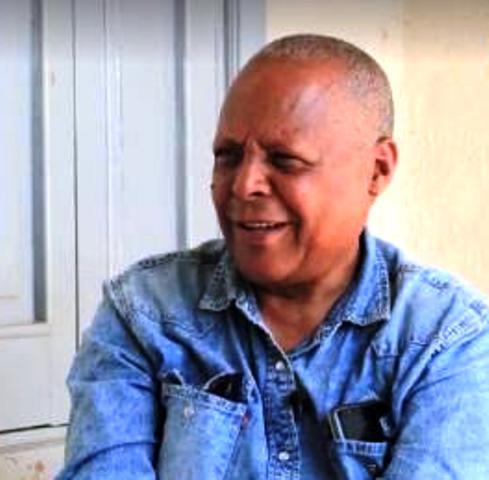
While studying at Addis Ababa University, Merara Gudina would participate in the student protests against the communist Derg regime and be imprisoned for 7 years.
Upon Merara's release from prison, he would go to Egypt and study at the American University of Cairo. He received his PhD in Political Science from the Institute of Social Studies in 2002 at the Hague, in the Netherlands.
In 1996, Merara created the Oromo National Congress or ONC, but this name would later be changed to the Oromo People's Congress or OPC in 2007.
By 2010, Merara would become the Co-Chairman of the OPC, as well as the Chairman of Medrek.
In 2016, he was imprisoned for being linked to "terrorist" and "anti-peace" forces and released in 2018.
Merera believes in the self-determination of the Oromo people and self-rule under a united Ethiopia.
His party affiliations also wants to make Afan Oromo the co-official language of Ethiopia and he opposes the idea of secession based on the mutual strategic and national interest of the Oromos.
Furthermore, Merera believes that the Oromo people have historically participated in the creation of modern Ethiopia, including from within the monarchy.
Merara Gudina has been labeled as Ethiopia's leading opposition politician.
5. Jawar Mohammed
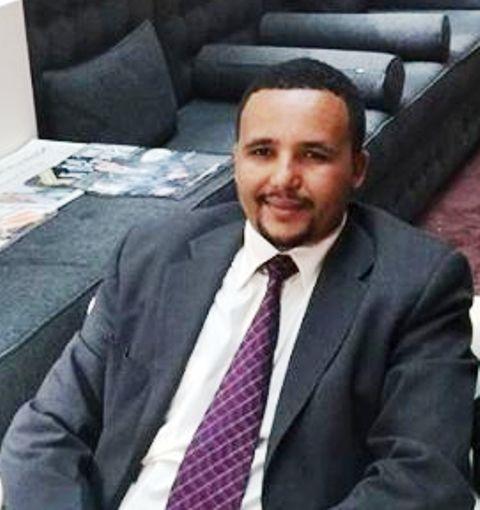
Jawar Mohammed is the energetic, dynamic and controversial political face of the majority of young Ethiopian Oromo's, who now have been given the green light to freely participate in the country's changing political scene.
It is evident that he now has a wide reaching network that spans across continents, namely, the Americas, Europe, and obviously Africa.
Jawar has perfected the art of disseminating his views to reach his massive audience base through the expert use of the many media outlets, some of which he runs.
His OMN (Oromia Media Network) was a constant source of information for those hoping to hear and watch the news from a TV broadcast that was not associated with the government.
Furthermore, Jawar's handling of Facebook with a following of no less than 1.2 million people, as well as, his skillful use of various other social media tools has helped firmly place him as an important and influential leader in today's ever changing Ethiopian political landscape.
source: Jawar Mohammed Biography: The Interesting Profile of an Influential Man
6. Dr. Debretsion Gebremichael
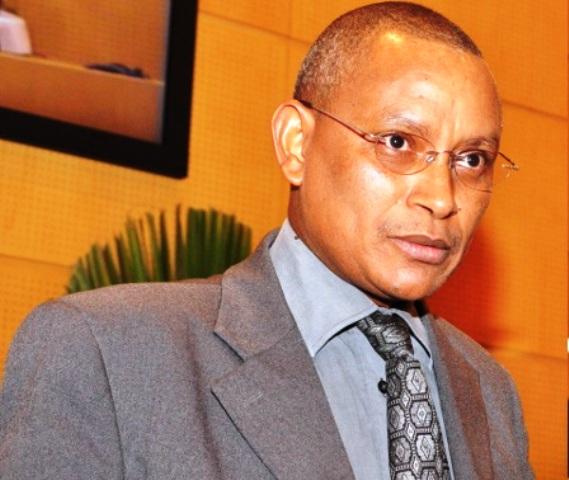
Debretsion Gebremichael, born and raised in the town of Shire Inda Selassie in the Tigray Region, was said to have been one of the brightest students, receiving a perfect score on his college entrance exams.
Debretsion was accepted to attend Addis Ababa University but he opted to join the Tigray People's Liberation Front or TPLF in their struggle against the Derg regime.
He would be sent by the TPLF to study communications technology in Italy and embark on a prolonged fight against the Derg using his skills in hijacking, jamming and sabotaging their radio, TV and military communications.
By the fall of the Derg, Debretsion would study Electrical Engineering at Addis Ababa University and received his bachelors and masters degrees.
In 2011, he studied Information Technology at Capella University and receive his PhD.
Debretsion would go on to hold a multitude of high level positions associated with Information Technology within the incumbent EPRDF government.
He is currently the Ethiopia Minister of Communication and Information Technology, the Chairman of the TIgray People's Liberation Front or TPLF, as well as, the acting President of the Tigray Region.
7. Sahle Work Zewde
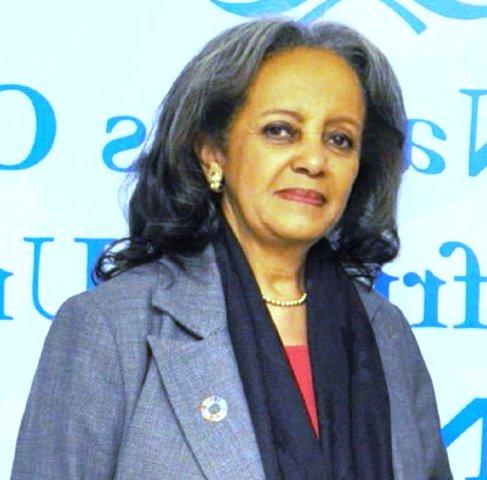
Sahle Work Zewde was born and raised in Addis Ababa where she attended the French Lycee Guebre-Mariam elementary and secondary school.
She would then leave Ethiopia and study Natural Science in France at the University of Montpellier.
Upon returning to Ethiopia, Sahle Work would be appointed Ambassador to Senegal, making her the second female to ever hold an Ambassadorship in Ethiopia.
This position would be the first in a life-long career as a high level diplomat representing Ethiopia, some of which include being an Ambassador to France, Djibouti, and Permanent Representative of Ethiopia to the Africa Union and United Nations Economic Commission for Africa.
By June 2018, Sahle Work was appointed by Secretary General Antonio Guterres as his Special Representative to the Africa Union and Head of the United Nations office to the African Union at the level of Under Secretary General of the United Nations, making her the first woman to hold this position.
Only four short months later, Sahle Work Zewde would be chosen as President of Ethiopia, making her once again the first woman to hold this position.
She is now only the 4th president since the fall of the Derg Regime and is Africa's only serving female head of state and the 1st female Ethiopian head of state since Empress Zewditu.
8. Birtukan Mideksa
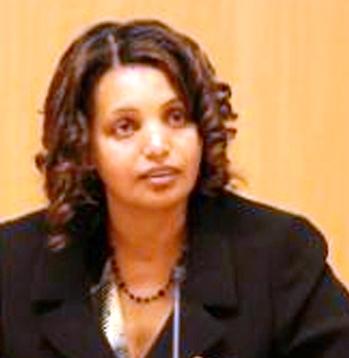
Birtukan Mideksa was born and raised in Addis Ababa, upon graduating from high school; she would attend Addis Ababa University and receive her bachelor's degree in Law.
After practicing in the 3rd district of the federal judiciary, she would in 2014 receive her Masters degree in Public Administration from Harvard University in the WEB Du Bois Institute for African and African American Research.
After being appointed Judge at the 3rd district, Birtukan would preside over the high profile case of Siye Abraha, who was a high ranking official of the TPLF or Tigray People's Liberation Front and the former defense minister.
She set Siye Abraha free on bail after she reviewed his corruption case, but government authorities re arrested him just minutes after being led out the courtroom.
Realizing a change had to be made in the justice system of Ethiopia; Birtukan would join the Rainbow Ethiopia: Movement for Democracy and Social Justice Party, and later the Coalition for Unity and Democracy or CUD.
The 2005 elections had her party win over one third of the seats, but the disputed results and the ensuing riots created an unfavorable political climate in the country and the incumbent government would end up arresting Birtukan.
After 18 months in prison, she would be pardoned and go on to create the Unity for Democracy and Justice or UDJ.
Unfortunately, by 2008, Birtukan would be rearrested and this time sentenced to life in prison, but with prolonged negotiations she would once again be released in 2010.
In 2011, Birtukan was awarded the Reagan-Fascell Democracy Fellowship of the United States National Endowment for Democracy, affording her 5 months in Washington D.C. to study democratic principles.
By 2018, the rise of the reformist Prime Minister Abiy Ahmed encouraged Birtukan Mideksa to return to Ethiopia.
She arrived on November 2018 and was elected as Chairwoman of the important National Electoral Board of Ethiopia or NEBE in the same month.
9. Abay Tsehaye
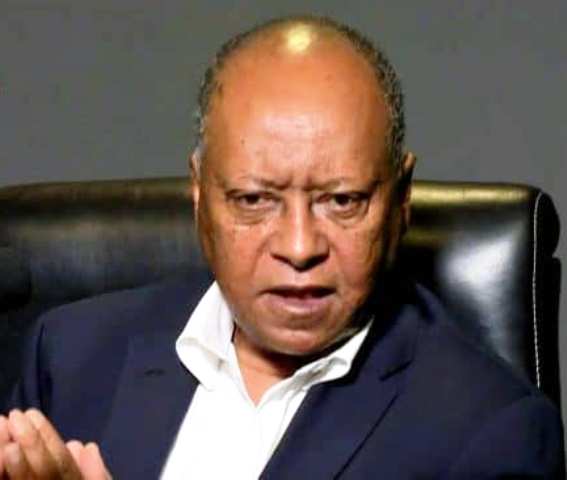
Abay Tsehaye born in Axum in the Tigray Region of Ethiopia, entered into political activism during the student movement in the 1970's.
As a student at the Haile Selassie I University, he joined the Tigryan University Student's Association and later went on to help create the Tigray People's Liberation Front or TPLF.
As one of the first chosen by the Eritrean People's Liberation Front or EPLF to be given military training, he would travel to Asmara in 1975.
Along with former Prime Minister Meles Zenawi and the high ranking Sibhat Nega, Abay Tsehay would found the Marxist-Leninist League of Tigray in 1985.
After the fall of the Derg, Abay would become Minister of Federal Affairs in 200 and also hold a high position as an executive member of the Central Committee of the TPLF.
10. Demeke Mekonnen
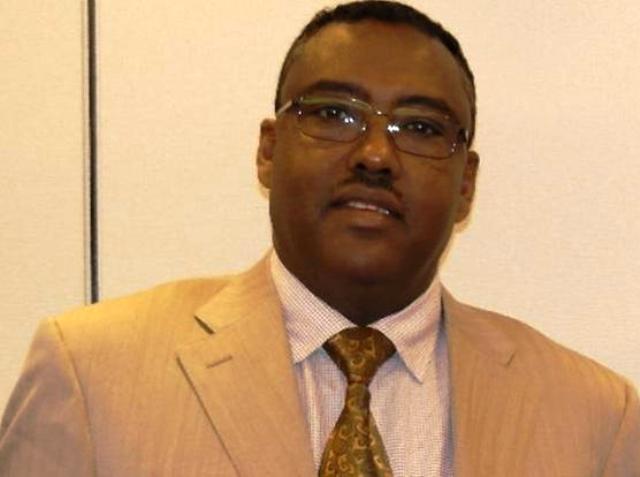
Demeke Mekonnen was born a Muslim in the Gojjam province in the Amhara Region of Ethiopia.
Upon coming of age, Demeke would attend classes in Addis Ababa University where he studied Biology and received his Bachelors degree in 1988.
After graduating, he would move back to his native region where he would begin teaching biology at high schools.
In the 1990's, Demeke joined the Amhara Democratic Party or the ADP.
1995 saw Demeke take part in the national election and win a seat in the Amhara Regional Council, and later appointed as General Secretary.
During his term serving, he would travel to the UK to do his post graduate studies in Conflict Management.
By 2001, he was chosen to lead the Ethics and Anti-Corruption Commission and later the Administrative and Security Affairs Bureau in the Amhara region.
After the highly contested 2005 elections, Demeke was made Vice President of the Amhara Regional State, and only a year later he became a member of the all powerful ANDM or Amhara National Democratic Movement Executive Committee.
In 2008, Demeke was made Minister of Education until 2012, when he took the role of Deputy Prime Minister of Ethiopia.
After the election of the new Prime Minister Abiy Ahmed, Demeke Mekonnen was able to hold on to his role as Deputy prime Minister of Ethiopia.
